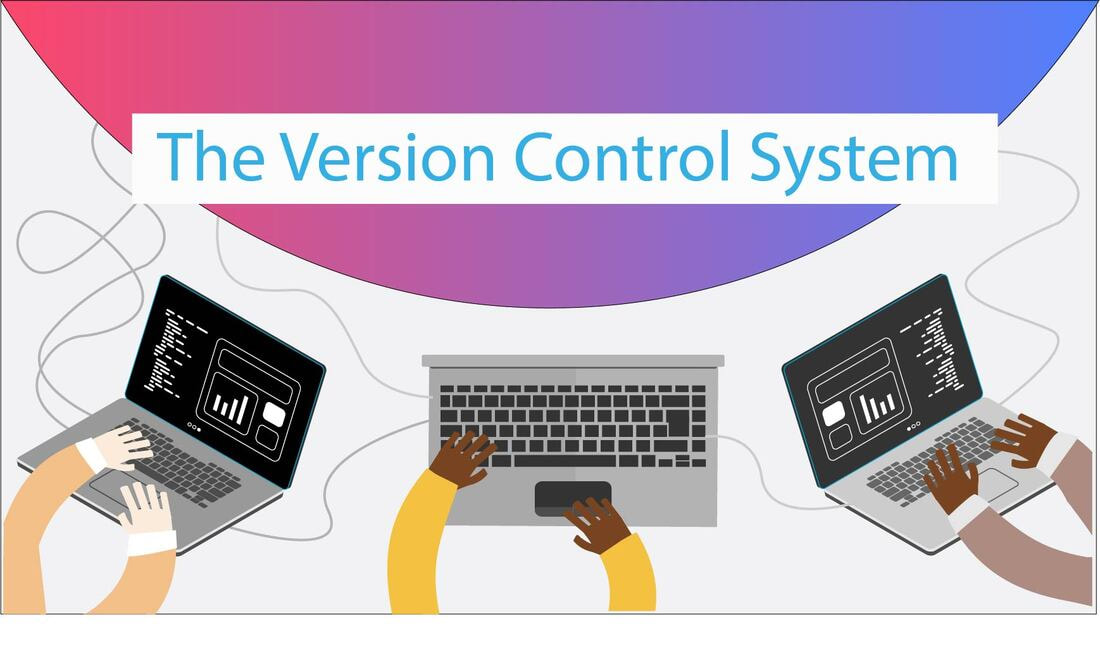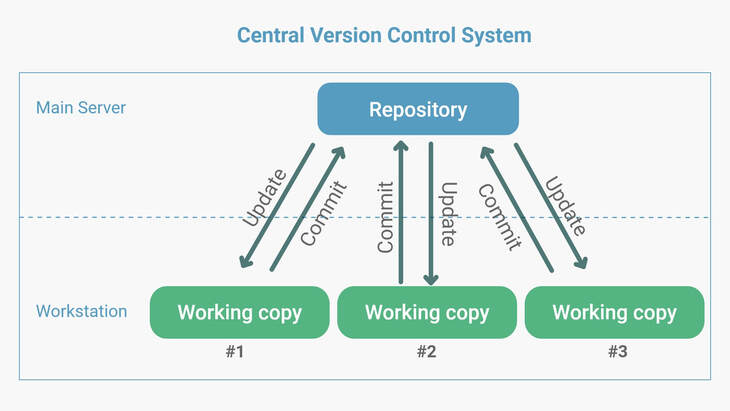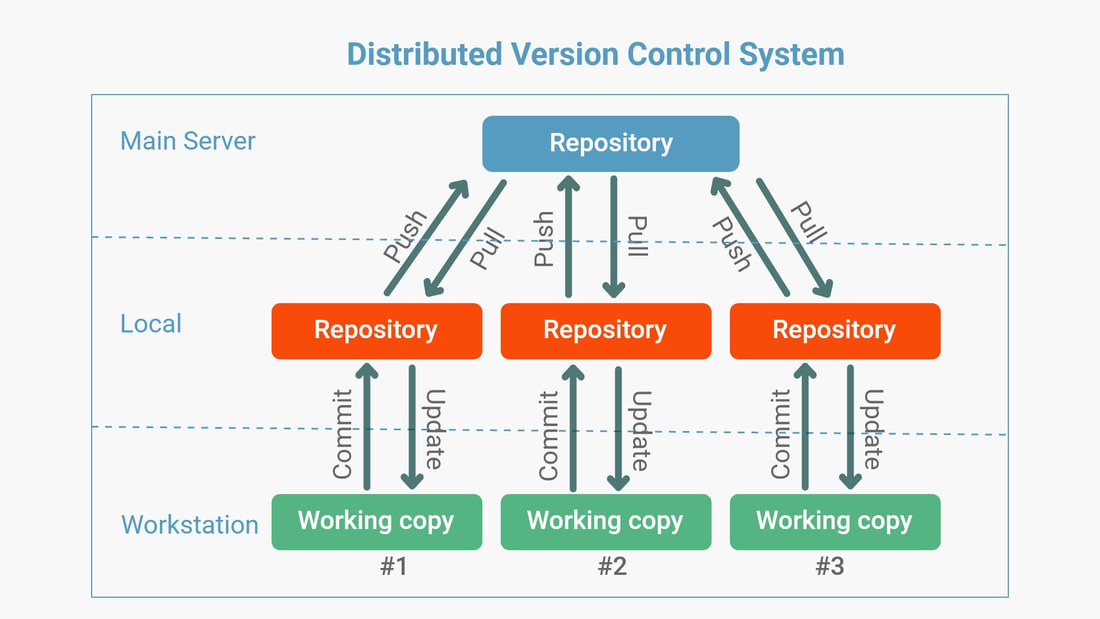|
There are two common Version Control Systems (VCS): centralized and distributed. Distributed version control is modern, faster, less error-prone and has more functionalities. However, it is very difficult to understand. You must decide if the extra challenge is worth it! Version control system is used to maintain the changes made to an artifact over time. Artifacts can be documents, code files or any kind of executables. By giving a specific version number, we can easily identify the changes committed to prior version, get snap shot of the artifact or undo/roll back the change committed. Why do we need Version Control System? When multiple team members work on the same project, it is essential to have version control for the program. Version control system helps the team to share changes and merge changes made to artifacts seamless and efficient. In DevOps, other than keeping track of changes, VCS also helps in developing and shipping the products faster. VCS improves the following factors:
Central Version Control System (CVCS) In CVCS, the central server stores all the data. This central server enables team collaboration. It just contains a single repository, and each user gets their working copy. We need to commit, so the changes get reflected in the repository. Others can check our changes by updating their local copy. Benefits of CVCS
CVS and SVN are some conventional Central Version Control systems. Drawbacks of CVCS
The Distributed Version Control System is developed to overcome all these issues. Distributed Version Control System (DVCS) In DVCS, there is no need to store the entire data on our local repository. Instead, we can have a clone of the remote repository to the local. We can also have a full snapshot of the project history. The User needs to update for the changes to be reflected in the local repository. Then the user can push the changes to the central repository. If other users want to check the changes, they will pull the updated central repository to their local repository, and then they update in their local copy.
Benefits of DVCS
Git and Mercurial are standard distributed version central systems. If we don’t want a DVCS on our server, we can use either GitHub or BitBucket to store our central repository, and we can get the clone of the central repository to our local systems. GitHub and BitBucket are the most popular companies that provide cloud hosting for software development version control using Git. DVCS is critical for DevOps because of the following reasons:
Version control is a fundamental concept to most of the companies. But its crucial role in DevOps cannot be overlooked.
2 Comments
MOHIT KUMAR
8/4/2021 15:41:45
Exactly what I was looking for, thank you very much .
Reply
Marqar
24/9/2022 23:03:41
оор
Reply
Leave a Reply. |
Tech TalksStay up to date with the tech world and the latest trends in the industry. Archives
August 2021
Categories
All
|
|
H-Town Technologies Inc. is designed to
provide continuous and comprehensive support to all our clients in IT Consulting, Development and Managing their day-to- day business operations in the IT sector. |
|
COPYRIGHT © 2020. H-TOWN TECHNOLOGIES INC. ALL RIGHTS RESERVED.




 RSS Feed
RSS Feed
